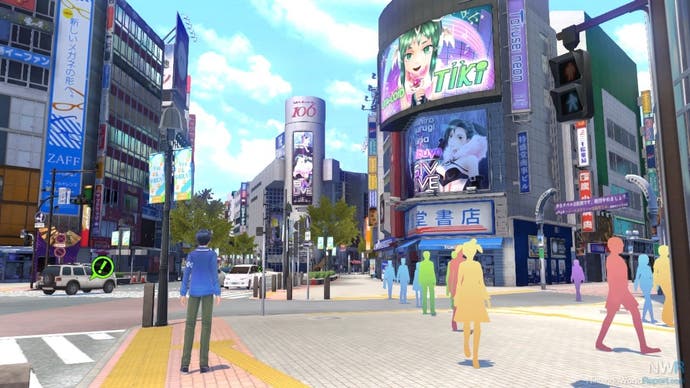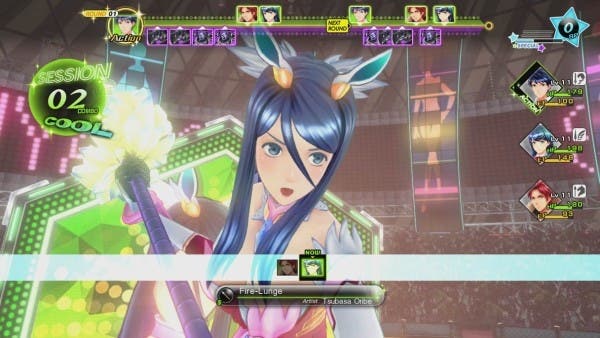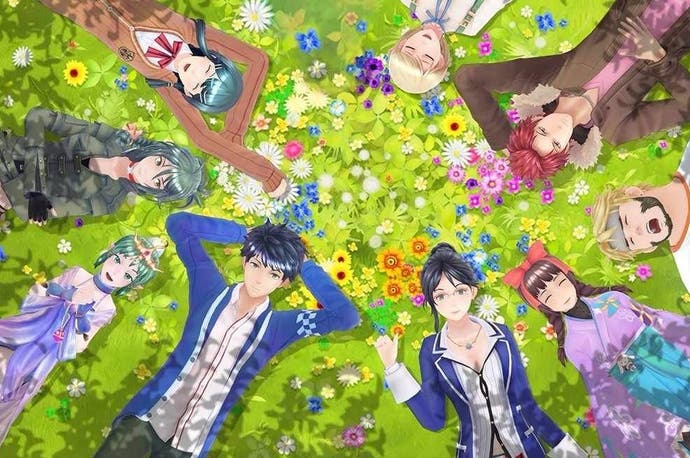Tokyo Mirage Sessions #FE review
Live from Shibuya.
There are a lot of things I want in life. World peace, an end to poverty, chilli sauce of noticeable heat in every McDonalds, and for every teenager to live like the protagonists of Tokyo Mirage Sessions #FE. Because this is a beautiful place, full of beautiful people and beautiful music, and friends who go on to become superstars without ever losing that kernel of everyman affability. Tokyo Mirage Sessions is a celebration, and it rightly should be. If a crossover between Fire Emblem and Shin Megami Tensei, a top-shelf JRPG native to the Wii U, cannot delight in its own existence, I don't know what can.
But let's dial it back. What's Tokyo Mirage Sessions? Like the Persona games, it features an organisation of teenagers working to combat a bizarre menace that the public doesn't quite understand. In this case, the Fortuna Entertainment Agency, and a flotilla of red-cowled entities known as Mirages, who were incidentally responsible for a mass disappearance several years prior to the events of the game.
Your character joins their ranks after he dives into what is called an Idolasphere in pursuit of a kidnapped friend. In the process, you learn about "Performa," how to free Mirages from the tyranny of their own negative energies, and earn your status as a "Mirage Master," which is rather like a Pokemon trainer.
I'm going to take a moment here to talk about the battles. Not the battle system, which should, outside of a few key elements, be instantly familiar to anyone who has played a turn-based JRPG, but the battles themselves. Because they are glorious.

Combat takes place within festive arenas, ringed by an audience of Mirages, all of whom seem wildly excited about your confrontations. Bleeding neon color from every pore, these stadiums are festooned with confetti and lights and larger-than-life portraits of your characters. Switch between teammates, and the images will change accordingly, occasionally in tandem with a walk-in ala WWE meets J-Pop.
It's wild and it's over-the-top and somehow it all works. Characters sign the air with their signatures before launching into extravagant assaults. They spin their mic stands, they sing, they perform gymnastic marvels, calling out to each other the entire time. The world is their stage and you will watch the show, player. You will watch.
Literally.
And when I say literally, I do mean literally. There's a thing in Tokyo Mirage Sessions called, well, Sessions and they're chain-attacks that kick in when you a) have the appropriate skill on a character and b) have attacked an enemy's weakpoint. This can lead to a veritable barrage of damage, but the problem with this is you can't really skip the animations. (It's entirely possible I've failed to figure out that option in the many, many hours I've spent on the game. So, do keep that in mind.)
But that's only a very minor quibble. By and large, combat's a delight and the animations for the Duo Acts (two-player special moves), Special Performances (your ultimates, essentially), and Ad-Lib Performances (screen-wide attacks that replace your normal skills) are charming enough that I frequently watch them through to the end.
As a relevant aside: your skills are tied to weapons, as opposed to the Mirages themselves. Although, given that your Mirages do transform into weapons, I suppose that previous point might be moot. Anyway. Using a variety of drops, it's possible to unlock new weapons, each with a different cadre of weaknesses and strengths, and most importantly, skills. You "inherit" new abilities through the use of Carnages, and also Radiant Unity, which doles out bonuses to stats, among other exciting improvements.
Moving from the micro to the macro, let's talk about the dungeons. They're keyed to the personalities of the antagonists, of course. A photographer's Idolasphere is rampant with pictures of women, while a director's Idolasphere seethes with film-related paraphernalia. But unlike the Persona games which Tokyo Mirage Sessions so resembles, these dungeons all have puzzles.
For the most part, this simply adds to the experience, alternatively offering an amusing diversion or a secondary layer of challenge. I absolutely loathed one of the stages, however, an irritating conundrum of sliding blocks that requires you to possess a sense of direction. Let's be clear here: I can't find my way out of a paper bag, and north's simply a word that dwells in the dictionary. If you're slightly better at triangulating location than I am, you might find this tolerable. I didn't.
Back to the meat of things. Tokyo Mirage Sessions is divided into chapters and intermissions. In theory, you're supposed to do all the plot-related stuff in the actual chapters, leaving the side stories to the intermissions, but the game doesn't hold you to that idea. It's entirely possible to go off and chase cats through the streets of Shibuya instead of, you know, saving the world. And that's great.

The game does a fantastic job at portraying this entourage of teen idols as both human beings and objects of public adulation. We see the meteoric rise of a high-school girl, the commitment of an actor to his profession, the fears of a child talent. Tokyo Mirage Sessions doesn't shy from the bleaker elements of show business, although it doesn't linger long on them, preferring to touch on their presence instead of going into detail like, say, Persona 4: Dancing All Night.
Another point of discontent: Tokyo Mirage Sessions is considerably more streamlined than other games within the tangentially related franchise. There's no sense of urgency in regards to finishing the side stories. Everyone's always readily accessible, and there's not much to do. An odd trip around Shibuya here, a quick jaunt into the Idolasphere there. It lacks the scope and the agency of Social Links in Persona, making it less intimidating for newcomers, but also frustrating for long-term fans. I'd expected more friction towards the end; to feel like there was not enough time to do everything I needed. But there wasn't, and that's weirdly vexing.
Speaking of frustrating, Tokyo Mirage Sessions' most glaring issue, perhaps, is the one that it can help the least. Despite the presence of certain iconic personalities, notably Tharja (who is easily the best Mirage in the game, and I will fight you if you object) and Chrom, there's very little Fire Emblem here. What exists feels more like set dressing than anything else. Yes, the plot is relevant to the popular strategy series. Yes, the Mirages are all from that world. And yes, the use of weaponry is closer to what you see in Fire Emblem than Shin Megami Tensei. But by and large, it feels like if you replaced a few names, no one would realize the connection.
But that feels like nitpicking for nitpicking's sake. For all of its inadequacies, Tokyo Mirage Sessions is superb. The animated cut scenes, the kind-of-like-Persona-5-but-not-quite-there-yet interface, the music videos, the music - good lord that music. It's a giddy game, full of love and puppy-like enthusiasm and the certainty that friendship is the solution for everything. I don't know if I'd recommend it to anyone who isn't already a fan of all things Japanese, but for those of you who are, you're likely to find a very good time.



